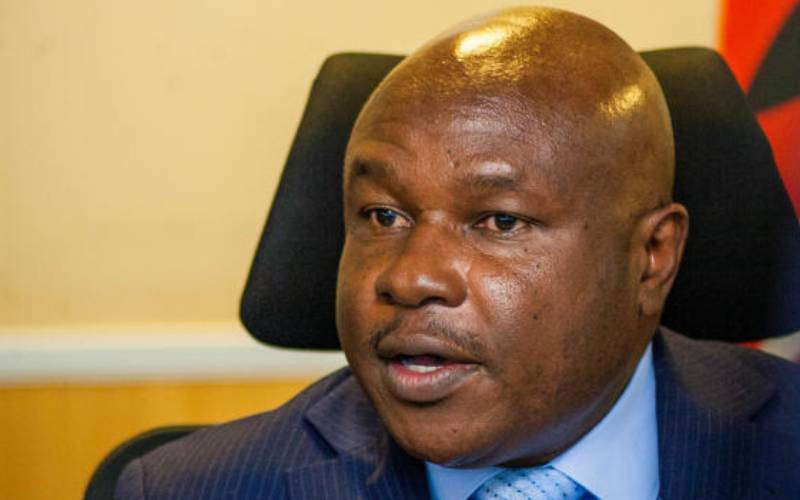
Ever wondered how the rich keep getting richer? How they manage to keep building wealth through generations?
Well, it isn’t really mind-boggling stuff. They teach their children early on what running a business entails and give them valuable lessons that no business school can offer.
What the rich do: They are open about money with their children, and show them how they get it.
What the poor do: They keep their finances a secret
The only time the poor talk about money in their households is when arguing about the high cost of their expenses and turning down requests for a purchase. This usually breeds negative feelings about money in young children and the relationship they develop with money as they grow up is that money is scarce.
On the other hand, the rich are very open about money. They will talk to the children about the value of money. They are taught that one has to earn the money and it isn’t something that just magically appears in their parent’s pockets.
They tell them what they do to make money, how they grow it and what they are doing to make more. This opens up a kid’s mind to the possibilities out there. And you will find these children very interested in their parent’s businesses.
James Mworia, the managing director and chief executive officer of Centum Investment Company, revealed in a past interview that his mother was his first CEO, as he helped her run her hotel and farm.
She did such a great job teaching him business that they still work together. “My mother was my first CEO. She taught me a lot and we’re still working together,” he said. “She was very strict. Before going to bed, we had to tell her our plans for the next day. If she found you sleeping later than 6.30am she would cane you. That taught us about waking up and working early in the morning,” he said.
Mworia also got his first job as a filing clerk for his father, who was a lawyer, while he was in Standard Six.
What the rich do: Teach them business basics
James Mwangi, Group CEO of Equity Holdings didn’t grow up in a rich family, but his mother shaped his mind like most rich parents do. He had to pitch in in the running of his mother’s business in order to sustain the family. He says this helped him learn the basics of doing business, which was understanding demand, what people were willing to pay, value addition, how to sell and make profit. When he went to secondary school, learning accountancy and commerce sharpened what he had had experience in.
“I could see how the systems related to the small businesses we had been doing. We had been going about business in a haphazard way, but here was a systematic method of doing the same things with far better results,” he says.
What the rich do: Teach their children delayed gratification
Stay informed. Subscribe to our newsletter
“Children must be taught to work for the things they want, such as cell phones, video games, toys and such like. When they are given everything they want by their parents, it’s easy for kids to develop an Entitlement Mindset”- Rich Habits, Poor Habits by Thomas Corley
The poor person mindset is to hand their child whatever they want if they can afford it. This gives a child a sense of entitlement. Later on, in employment, they may not understand why sometimes they have to work so hard for so little money and will eventually quit. Many wealthy parents will teach their children to save up for what they need. In fact, Gordon Ramsey who owns and operates 40 Michelin starred restaurants around the globe with a net worth of about US $153 billion says that he has no intention of leaving anything to his four children. “It’s definitely not going to them. And that’s not in a mean way; it’s so as not to spoil them. The only thing I’ve agreed with Tana (his wife) is they get 25 per cent deposit on a flat, but not the whole flat.
This teaches them that despite getting a head start in life, they have to put in the work.
What can you do?
If they want something (that is not a basic need), let them earn the money and save up for it.
What the rich do: They teach their children that gambling is bad money sense.
In a study done by Thomas Corley for his book Rich Habits Poor Habits, he found that 6 per cent of the wealthy played the lottery vs 77 per cent of the poor. Worse, the poor admitted to playing the lottery regularly. “According to Nicolas Christakas Habits (Yale University researcher), habits spread like a virus within your social network. Children are constantly observing what their parents do. If parents gamble, their children will very likely gamble as adults.”
That’s a lesson that Richard Branson, the Virgin tycoon, took his children to Las Vegas to learn. “Rather than getting themselves into a dangerous situation, I decided to introduce them to the pitfalls of betting personally,” he wrote in his autobiography Finding my Virginity. “I thought learning a few hard-hitting lessons in an atmosphere of hedonism and wild abandon could actually be effective. He actually had them try their hand at it, and they lost all their money.
“That’s the thing about gambling. Everyone thinks that they can win...But, in fact, it takes no time at all for all that hard-earned money to disappear into thin air.” The children ended up winning some cash, but Branson had them understand it was an exception, just like in real life.
 The Standard Group Plc is a
multi-media organization with investments in media platforms spanning newspaper
print operations, television, radio broadcasting, digital and online services. The
Standard Group is recognized as a leading multi-media house in Kenya with a key
influence in matters of national and international interest.
The Standard Group Plc is a
multi-media organization with investments in media platforms spanning newspaper
print operations, television, radio broadcasting, digital and online services. The
Standard Group is recognized as a leading multi-media house in Kenya with a key
influence in matters of national and international interest.
 The Standard Group Plc is a
multi-media organization with investments in media platforms spanning newspaper
print operations, television, radio broadcasting, digital and online services. The
Standard Group is recognized as a leading multi-media house in Kenya with a key
influence in matters of national and international interest.
The Standard Group Plc is a
multi-media organization with investments in media platforms spanning newspaper
print operations, television, radio broadcasting, digital and online services. The
Standard Group is recognized as a leading multi-media house in Kenya with a key
influence in matters of national and international interest.










